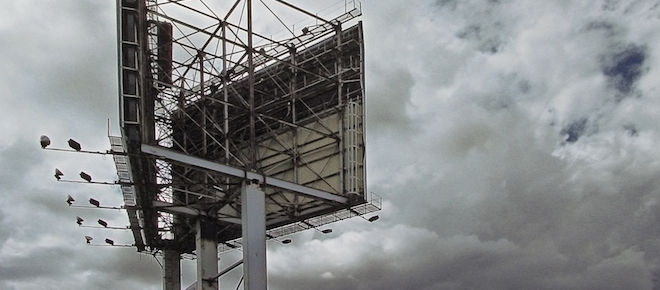Cities look to new billboard taxes to boost revenue
Outdoor advertising industry cries foul
Billboard against sky
Share

In the past, when residents complained billboards were a blight on the urban landscape, politicians might have responded by banning them. Now cash-strapped cities view them as an untapped source of tax revenue.
Winnipeg city council recently debated a plan to hike taxes on billboards by as much as 380 per cent. Taxes on animated digital boards would have increased from $1,000 a year to $23,000. Last week, the city postponed the decision until next year following an outcry from the industry, which argues billboards aren’t quite the cash cow councillors believe.
Still, it appears to be a losing battle. Last month the Supreme Court of Canada refused to hear an appeal by the outdoor advertising industry to strike down Toronto’s 2009 billboard tax. The industry had argued it is an indirect tax not permitted under the City of Toronto Act. The city estimates it will bring in more than $10 million a year in added revenue, which the industry contends would be more than the profits of the billboards themselves.
South of the border, cities are also eyeing billboard taxes as an alternative to property tax hikes. Baltimore councillors have called for a tax, complaining that Clear Channel, the “multi-billion-dollar conglomerate” that owns most of the city’s billboards, boosted profits despite the recession. Last month, Pittsburgh unanimously approved a 10 per cent tax on billboard revenue, even as a state senator warned it could infringe on the right to free speech.
So far just six jurisdictions in North America have imposed such a tax. But given the amount of money at stake, it won’t be long before those roadside ads start looking less like annoying distractions and more like dollar signs.